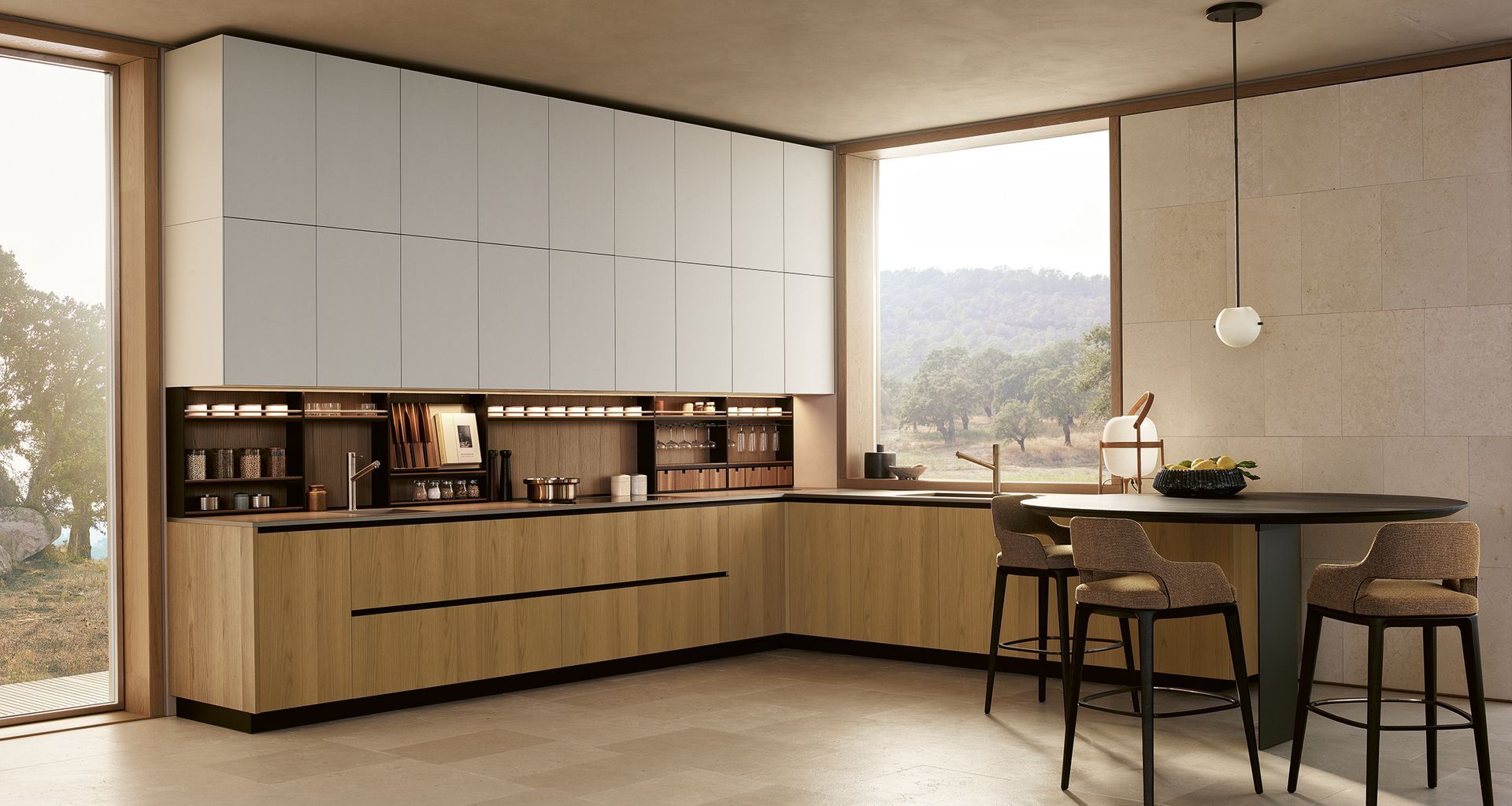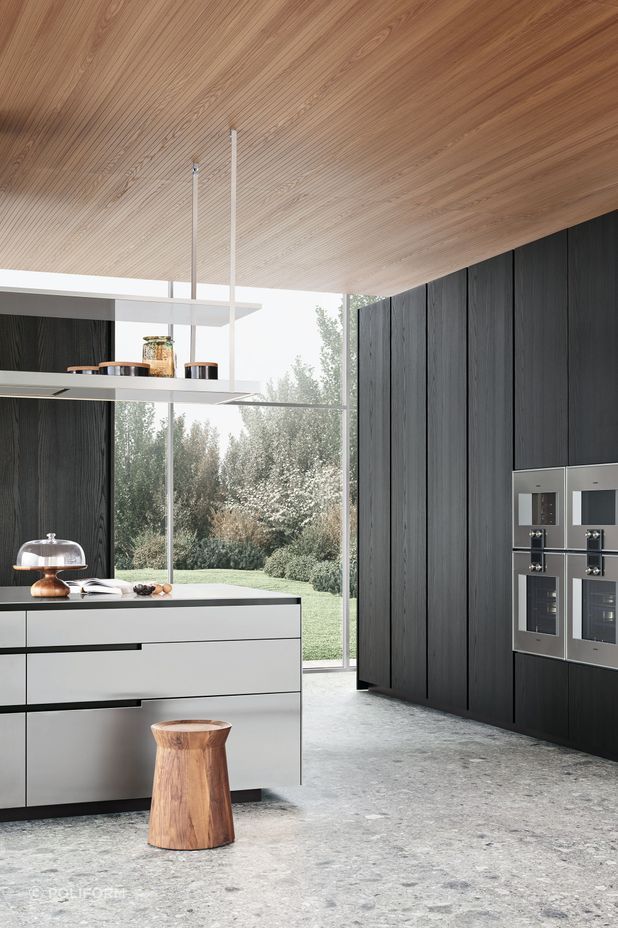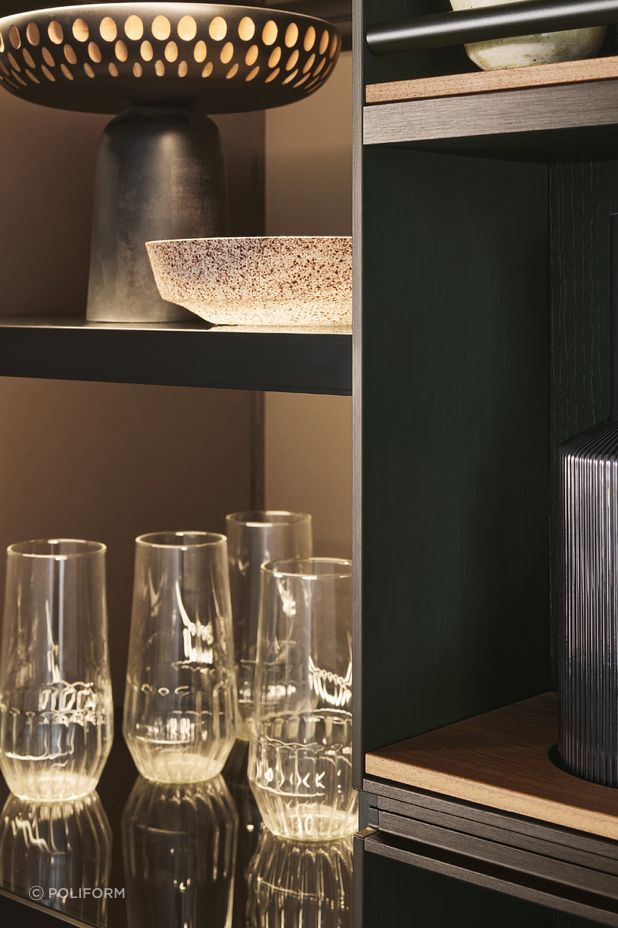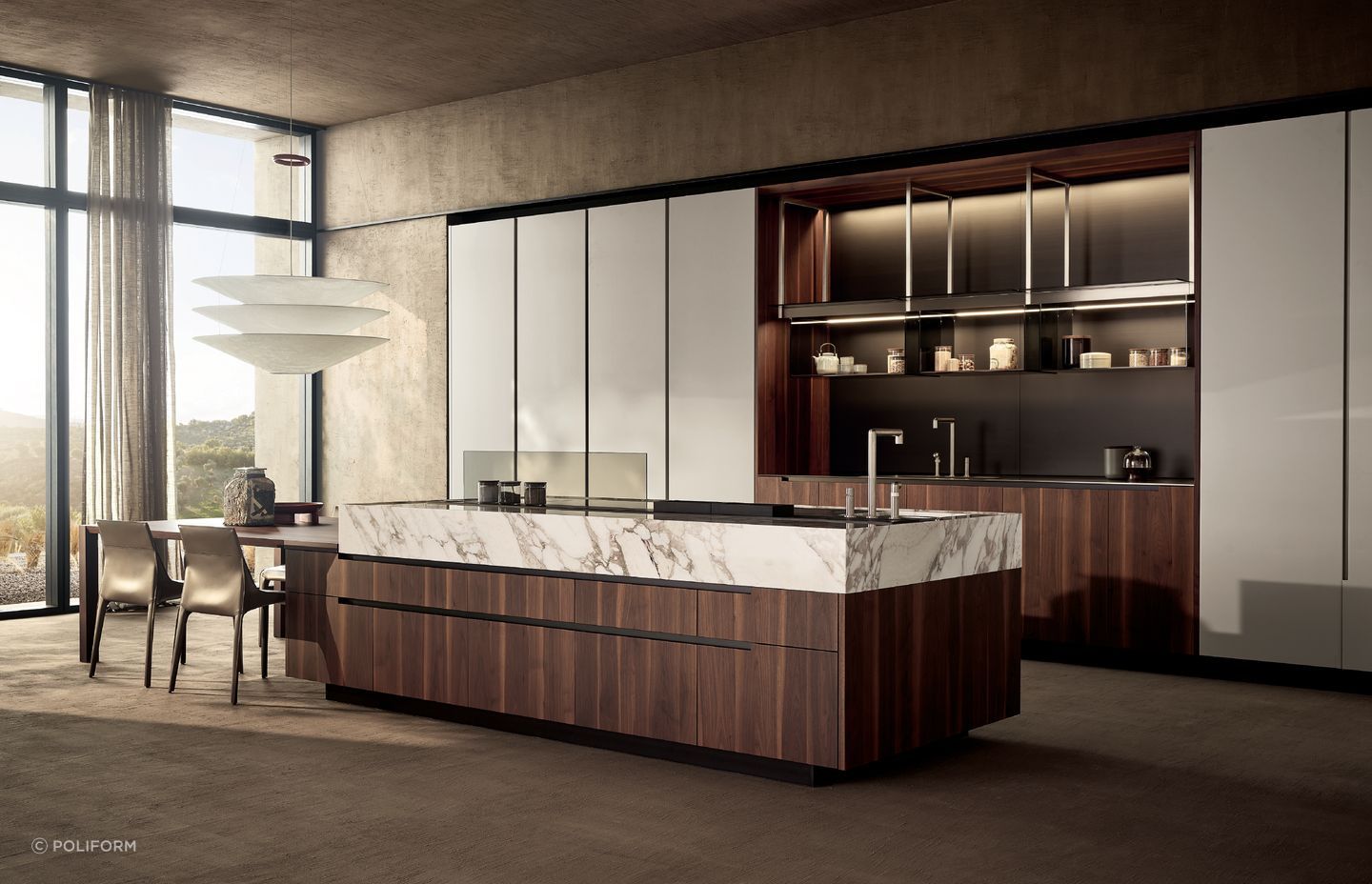A unique approach to kitchen materiality
Written by
28 October 2025
•
4 min read

Crafting with contrast
“Materiality has always been central to Poliform’s design ethos,” says Cathie Noel, Sales Manager at Poliform Sydney. “It’s rooted in our Italian heritage and commitment to craftsmanship. In Australia, that philosophy really resonates with a design-savvy audience that values an aesthetic refinement and functional performance.”
In Poliform’s design language, materials are not merely selected for their surface appeal. “When materials are curated not just for their individual beauty, but for the dialogue they create together in the space,” says Cathie. “In a Poliform kitchen, this might mean pairing the technical precision of brushed stainless steel with the organic warmth of timber and the natural drama of veined marble.”
These contrasts, she adds, are what make a kitchen feel modern and timeless. They invite touch, create zones, and anchor the space architecturally. “Contrasting materials are essential to Poliform’s designs," says Cathie.
"They define zones, enhance usability and evoke emotion. A stainless-steel island offers a hygienic, high-performance prep space, while timber cabinetry introduces warmth and texture. Marble benchtops add a sculptural quality and a sense of permanence.
“Together, they create a kitchen that supports the rituals of daily life and entertaining alike.”


The precision behind mixing materials
Turns out, mixing stainless steel, marble and timber is no easy feat. Cathie remarks, “When working with such diverse materials, detailing is essential."
- Stainless steel must be treated to resist fingerprints and scratches
- Marble requires proper sealing and edge detailing to prevent chipping
- Timber must be stabilised to withstand humidity and temperature changes.
Cathie continues, “Cohesion is when scale, proportion, and repetition are carefully considered,” she says. “We use consistent lines, integrated handles, and tonal palettes to unify the space.”
For example, a reflective stainless-steel island might be balanced by solid timber doors and a honed marble splashback. These subtle details (matching profiles or grain directions) ensure the design feels seamless rather than fragmented.

Poliform’s signature material palettes
Each of Poliform’s kitchen ranges is distinguished by its approach to mixing key materials:
- Alea & Alea Pro: Defined by linear geometry and minimalist appeal, these kitchens offer finishes such as Inalco MDi stone, anodised aluminium profiles, glass, and timber veneer. Alea Pro introduces expressive chamfered edges and transparent showcase doors.
- Shape: Emphasising aesthetic continuity and functionality, Shape often pairs stainless steel, lacquered finishes, and solid timber for a cohesive flow between the kitchen and living areas.
- Artex: Designed for open-plan living, Artex highlights a distinctive chamfered cabinet profile and features metal lacquer finishes for a strong architectural presence.
- My Planet: Created for younger, design-conscious homeowners, My Planet uses matte laminates, wood melamine and glossy acrylics for maximum versatility in compact spaces.
Cathie shares a recent project of a Shape kitchen installed in Sydney. “It featured a stainless steel island paired with a Saint Laurent noir marble benchtop and solid black elm tall cabinets. The combination created a centrepiece and a highly functional working kitchen.”
Italian quality, local expertise
When bold materials meet everyday use, quality is key. That’s why all Poliform kitchens are manufactured in Italy; according to Cathie, it's a deliberate decision to guarantee quality and consistency.
“We have access to Europe’s finest materials and technologies,” she says. “When these kitchens arrive in Australia, our experienced local installation team ensures they meet local standards and perform well in coastal and urban environments.”
So how bold should a homeowner be when exploring materiality?
According to Cathie, confidence comes from understanding balance and timelessness. “Choose materials that speak to you, but ensure they’re grounded in integrity, whether that’s in the grain of timber, the depth of marble or the texture of brushed metal. A Poliform kitchen is designed to evolve with you, not date quickly.”
This philosophy reflects the brand’s roots in the Brianza region of northern Italy, historically a hub for fine woodworking. “Poliform was founded in 1970 by artisans with a passion for craftsmanship,” shares Cathie.
While the company has grown into a global design powerhouse, that artisanal ethos remains. Every kitchen is still manufactured in Italy with meticulous attention to detail.
View the Poliform kitchen range on their website or contact them on ArchiPro today.
